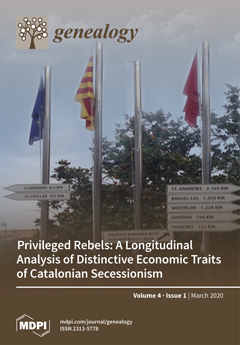Issues related to Catalan secessionism are central to current debates on European integration, nationalism, and territorial politics, and the Catalan independence movement has become famous for its large annual demonstrations on Catalan national day, the
Diada. This paper represents the first attempt
[...] Read more.
Issues related to Catalan secessionism are central to current debates on European integration, nationalism, and territorial politics, and the Catalan independence movement has become famous for its large annual demonstrations on Catalan national day, the
Diada. This paper represents the first attempt at a thorough empirical investigation of the most important political event in Catalonia combining historical and ethnographic analysis that covers the current modern period from 1977 to 2019. This paper uses a mixed-methods approach to study the
Diada mobilisations with two different main approaches determined principally by the availability of sources. We investigate the recent period of activating the
Diada since 2012 using qualitative interviews, ethnographic data, and social media analysis. For the more distant periods of the
Diada celebration, we use a more classical historical approach centred on discourse analysis of print media and public discourses. We find that there has been a marked shift in the perception and organisation of the
Diada in recent years. We conclude that when civil society organisations are in charge of the
Diada celebration, the result is a more politically charged event that mobilises a much larger proportion of the population than when politicians and political parties organise the celebration. Further, when political parties are in charge, the
Diada not only mobilises far fewer people, but usually takes on a much more cultural and festive character compared with the explicitly political
Diada demonstrations organised by civil society actors since 2012.
Full article





